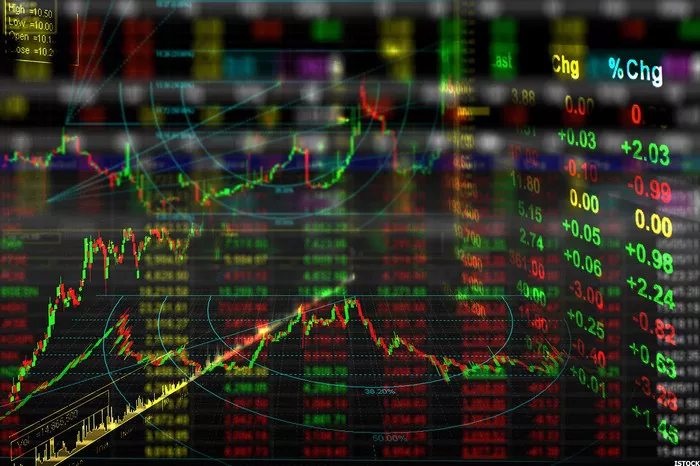The Dow Futures Index, often referred to simply as “Dow Futures,” is a critical financial instrument that plays a significant role in the world of investing and finance. It provides valuable insights into the future performance of the Dow Jones Industrial Average (DJIA), one of the most widely followed stock market indices globally.
Understanding the Dow Jones Industrial Average (DJIA)
Before diving into Dow Futures, it’s crucial to understand its underlying benchmark, the Dow Jones Industrial Average. Commonly known as the Dow, it is one of the oldest and most recognized stock market indices in the United States. The DJIA comprises 30 large, publicly traded companies that are considered industry leaders and represent various sectors of the U.S. economy.
What Are Dow Futures?
Dow Futures, as the name suggests, are futures contracts that are linked to the performance of the DJIA. These contracts provide investors and traders with a way to speculate on the future direction of the index. Dow Futures are traded on various futures exchanges, with the Chicago Board Options Exchange (CBOE) being one of the most prominent.
How Dow Futures Work
Dow Futures allow market participants to make predictions about the future value of the DJIA. These futures contracts are financial derivatives that derive their value from the underlying index. Here’s how they work:
Contract Specifications: Each Dow Futures contract has specific terms and conditions, including the contract size, expiration date, and tick size. For example, a standard Dow Futures contract may represent a $10 multiplier of the DJIA.
Bullish and Bearish Positions: Traders can take either bullish or bearish positions in Dow Futures. If a trader believes that the DJIA will rise, they take a long (buy) position. Conversely, if they expect the DJIA to fall, they take a short (sell) position.
Leveraged Trading: Dow Futures are leveraged instruments, meaning that traders can control a larger position with a relatively small amount of capital. This leverage can amplify both gains and losses.
Expiration: Dow Futures contracts have expiration dates, typically occurring quarterly. Traders can choose contracts with different expiration months to align with their market outlook.
Settlement: Dow Futures contracts can be settled in cash. Upon contract expiration, the futures price is compared to the actual DJIA value. The difference is settled in cash, with profits or losses credited or debited to the trader’s account.
The Role of Dow Futures in Risk Management
One of the primary functions of Dow Futures is risk management. They are used by market participants, including institutional investors, to hedge their portfolios against potential market downturns. For instance, a portfolio manager with a significant exposure to DJIA components may use Dow Futures to protect their holdings from adverse price movements.
Speculation and Trading Opportunities
While risk management is a crucial aspect of Dow Futures trading, these contracts are also widely used for speculation. Traders and investors with varying strategies seek opportunities to profit from short-term price movements in the DJIA. Dow Futures offer a liquid and accessible market for these purposes.
Key Factors Influencing Dow Futures
Several factors can impact the pricing and movement of Dow Futures:
Economic Indicators: Economic releases such as GDP data, employment figures, and inflation reports can influence market sentiment and, consequently, Dow Futures prices.
Corporate Earnings: Earnings reports of DJIA components can have a substantial impact on the index and, by extension, Dow Futures.
Global Events: Geopolitical events, trade tensions, and global economic developments can affect investor sentiment and market direction.
Interest Rates: Changes in interest rates by central banks, particularly the Federal Reserve, can influence market expectations and Dow Futures.
Market Sentiment: Investor sentiment, often driven by news and events, plays a significant role in the short-term movements of Dow Futures.
The Relationship Between Dow Futures and DJIA
Dow Futures and the DJIA are closely related, but it’s essential to understand that they are not the same thing. Dow Futures are forward-looking contracts that reflect market expectations for the DJIA’s future performance. In contrast, the DJIA represents the historical performance of the 30 companies it comprises.
Trading Hours for Dow Futures
Dow Futures trade almost around the clock due to the global nature of financial markets. The trading hours typically span Sunday evening to Friday afternoon, with brief daily trading pauses. This continuous trading allows market participants to respond to breaking news and events, contributing to the market’s liquidity and efficiency.
Benefits and Risks of Trading Dow Futures
Trading Dow Futures offers several benefits:
Diversification: Investors can gain exposure to the entire DJIA with a single contract, providing diversification benefits.
Liquidity: Dow Futures are among the most liquid futures contracts, with ample trading volume and tight bid-ask spreads.
Leverage: Futures contracts offer leverage, allowing traders to control a larger position with a relatively small amount of capital.
However, Dow Futures trading also comes with risks:
Leverage Risks: While leverage can amplify gains, it can also lead to substantial losses if the market moves against the trader.
Market Risk: Futures markets can be volatile, and unexpected events can lead to rapid price movements.
Timing Risk: Dow Futures require precise timing, and incorrect market predictions can result in losses.
Conclusion
The Dow Futures Index plays a significant role in the financial markets by offering a way for investors and traders to speculate on the future direction of the DJIA. These futures contracts provide opportunities for both risk management and speculation, and they are influenced by various economic, financial, and geopolitical factors. Understanding Dow Futures and their relationship to the DJIA is essential for anyone looking to navigate the complexities of the stock market and participate in futures trading.


